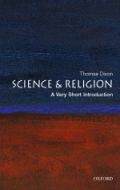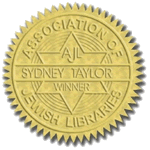If you asked many people today, they would say that one of the limitations of analytic philosophy is its narrowness. Whereas in previous centuries philosophers took on projects of broad scope, today’s philosophers typically deal with smaller issues.
The post Against narrowness in philosophy appeared first on OUPblog.
Einstein has had a good month, all things considered. His century-old prediction, that the very fabric of space and time can support waves travelling at light-speed, was confirmed by the LIGO collaboration. More, the bizarre and horrifying consequences of his theory of gravity, the singularly-collapsed stars that came to be called ‘black holes’, have been directly detected for the first time.
The post Questions, questions, questions… appeared first on OUPblog.
By Jason Rosenhouse
In May 2000 I began a post-doctoral position in the Mathematics Department at Kansas State University. Shortly after I arrived I learned of a conference for homeschoolers to be held in Wichita, the state’s largest city. Since that was a short drive from my home, and since anything related to public education in Kansas had relevance to my new job, I decided, on a whim, to attend.
You might recall that Kansas was then embroiled in a battle over state science standards. A politically conservative school board had made a number of changes to existing standards, including the virtual elimination of evolution and the Big Bang. This was very much on the mind of my fellow conference attendees, most of whom were homeschooling for specifically religious reasons. The conference keynoters all hailed form Answers in Genesis, an advocacy group that endorses creationism.
As a politically liberal mathematician who accepted the scientific consensus on evolution, this was all new to me. Curious to learn more, I struck up conversations with other audience members and participated in Q&A sessions whenever I could. The Wichita conference became the first of many that I attended over the next decade. This immersion in the creationist subculture taught me a few things about America’s hostility to evolution.
Some of what I learned was predictable. Though my conversation partners typically spoke with great confidence on a variety of scientific topics, it was rare that they really understood much about the theory they so despised. For me this problem was especially acute when they discussed mathematics. I lost track of how many times folks would tell me that probability theory refuted evolution, and then defend their view with absurd calculations bearing no resemblance to reality. If you are possessed of even a rudimentary understanding of basic science, then you quickly realize the extent to which they have neglected their homework.
Also unsurprising was the insularity I found. For many of the people I met, evangelical Christianity represented a tiny island of righteousness adrift in a sea of secular evil. At virtually every conference one or more speakers would warn of the seductions of “the world’s” wisdom, which is to say the world outside of their own tiny enclave. As they saw it, evolution was just one tool among many in the arsenal of God’s enemies.
But I also learned some things that surprised me. On many occasions I asked people the blunt question, “What do you find so objectionable about evolution?” Never once did anyone reply, “It is contrary to the Bible.” Conflicts with Scripture were certainly an issue, and these concerns arose almost inevitably if the conversation persisted long enough. They were never the paramount concern, however. It is not as though they thought evolution was an intriguing idea, but felt honor bound to reject it because the Bible forced them to. Instead, they flatly despised evolution, usually for reasons having nothing to do with the Bible.
They were horrified, for example, by the savagery and waste entailed by the evolutionary process. You can imagine how it looks to them to suggest that a God of love and justice, who declares his creation to be “very good,” would employ a method of creation which rewards any behavior, no matter how cruel or sadistic, so long as it inserts your genes into the next generation.
And what are we to make of humanity’s significance in Darwin’s world? Tradition teaches we are the pinnacle of creation, unique among the animals for being created in God’s image. Science tells a different story, one in which we are just an inciden

Few topics cause more controversy than the discussion about science vs religion. Here Thomas Dixon of Queen Mary, University of London examines the way the debate has been played out in the American political sphere in recent times.
Thomas Dixon is the author of Science and Religion: A Very Short Introduction, which publishes here in the UK next month.
During a televised debate last year between the candidates for the Republican presidential nomination, the host asked if any of them did not believe in evolution. First one, then a second, then a third raised his hand. Former Arkansas Governor Mike Huckabee later elaborated on his opposition to evolution, mocking those who ‘believe they are the descendants of a primate’ rather than ‘ the unique creations of a God who knows us and loves us, and who created us for his own purpose.’
 Although to most educated people – especially anyone unfamiliar with the historic strength and depth of creationist beliefs in the United States – these remarks may seem to reveal a shocking level of scientific ignorance, Huckabee knew what he was doing. He is just the latest in a long line of populist American politicians keen to tap into grass-roots religious beliefs. Huckabee, in short, was seeking the approval of that fifty percent of the American population who opinion polls consistently find believe in creationism and not evolution.
Although to most educated people – especially anyone unfamiliar with the historic strength and depth of creationist beliefs in the United States – these remarks may seem to reveal a shocking level of scientific ignorance, Huckabee knew what he was doing. He is just the latest in a long line of populist American politicians keen to tap into grass-roots religious beliefs. Huckabee, in short, was seeking the approval of that fifty percent of the American population who opinion polls consistently find believe in creationism and not evolution.
The most famous moment in the history of American anti-Darwinism came in 1925 in the small town of Dayton, Tennessee. A local school teacher there, John Scopes, was prosecuted for violating a recent law banning the teaching of evolution. The Scopes ‘monkey trial’ became the focus for a circus of pro- and anti-Darwinism in Dayton that summer, avidly reported by the world’s press. The prosecution case was led by the Democrat politician William Jennings Bryan. Bryan spoke up for the ordinary Christian folk of America against the perceived arrogance and infidelity of the intellectual elite. ‘Does it not seem a little unfair,’ Bryan asked, ‘not to distinguish between man and lower forms of life? What shall we say of the intelligence, not to say religion, of those who are so particular to distinguish between fishes and reptiles and birds, but put a man with an immortal soul in the same circle with the wolf, the hyena and the skunk? What must be the impression made upon children by such a degradation of man?’
Although William Jennings Bryan was a Democrat and Mike Huckabee a Republican, they are from the same political stock, and both aspired to become President. Bryan was the (unsuccessful) Democratic candidate for the presidency on three occasions. Known as the ‘Great Commoner’ because of his belief in the absolute sovereignty of the people, Bryan predicted that local school board elections would become more important than national elections, because parents would care more about the education and morals of their children than about foreign policy or economics. Huckabee’s anti-evolution stance appeals to just the same kinds of populism and localism. Like Bryan eighty years before him, he suggests that the only proper policy is for taxpayers and parents to decide what their children are taught in public schools. What could be more democratic, or more reasonable, than that?
And here is the heart of the liberal dilemma about evolution and creationism. Those who would identify themselves as progressive, enlightened, and liberal, usually consent to the proposition that school curricula should be set in a way that is open to the democratic process rather than being handed down by an autocratic intellectual elite. It seems right that the voters should have a say. But, what when those voters are creationists? Does the liberal instinct in favour of democracy then give way to some more powerful desires – to preserve the division between church and state enshrined in the First Amendment, for instance, or to give due weight to scientific expertise?
Finally it is worth noting that something else that Mike Huckabee has in common with William Jennings Bryan is that, despite his popularity, he is not going to be President. And neither of the men who might in fact be the next President of the United States is likely to provide the kind of encouragement to creationists and proponents of ‘Intelligent Design’ that Huckabee would have offered.
John McCain, during the same debate in which Huckabee indicated his support for creationism, was asked for a yes or no answer to the question ‘Do you believe in evolution?’ McCain looked momentarily uncomfortable, no doubt thinking of that hefty fifty percent of the electorate who would answer ‘No’, before giving a pretty confident ‘Yes’ to evolution. McCain has given some indications that he is happy for ‘Intelligent Design’ to be taught alongside evolution, but it is clearly not a cause for which he has any enthusiasm. Barack Obama has generally avoided the topic too but, when pushed in a recent interview, stated that religious instruction should be provided by parents and that it is ‘a mistake to try to cloud the teaching of science with theories that frankly don’t hold up to scientific inquiry’, by which one can assume he meant creationism and ‘Intelligent Design’.
So, although the next incumbent of the White House is certain to be someone who, unlike Bryan or Huckabee, believes in evolution (as well as God), the fact that the question is still asked of presidential hopefuls speaks volumes about the historical role of Christian fundamentalism in shaping American political culture.
ShareThis
 I am proud to formally announce my affiliation with the Sydney Taylor Book Award Committee. The Sydney Taylor book awards are given to those books deemed to be the best in Jewish Children’s Literature. I feel honored to be a part of this important process. As a child, I was an avid reader of Sydney Taylor’s All of a Kind Family Books. The sisters in the books, Ella, Henny, Sarah, Charlotte, and Gertie, were my friends. I have no doubt that their stories shaped my childhood and continue to inspire me as a reader, writer, and reviewer. In a sense, being on the Sydney Taylor Book Award Committee feels like coming home. If you would like to know more about the award, please visit www.SydneyTaylorBookAward.org
I am proud to formally announce my affiliation with the Sydney Taylor Book Award Committee. The Sydney Taylor book awards are given to those books deemed to be the best in Jewish Children’s Literature. I feel honored to be a part of this important process. As a child, I was an avid reader of Sydney Taylor’s All of a Kind Family Books. The sisters in the books, Ella, Henny, Sarah, Charlotte, and Gertie, were my friends. I have no doubt that their stories shaped my childhood and continue to inspire me as a reader, writer, and reviewer. In a sense, being on the Sydney Taylor Book Award Committee feels like coming home. If you would like to know more about the award, please visit www.SydneyTaylorBookAward.org




